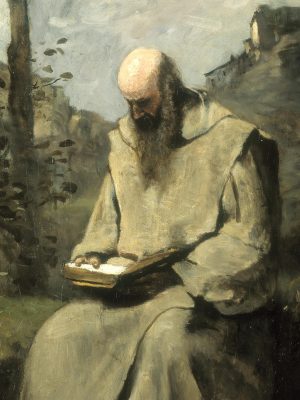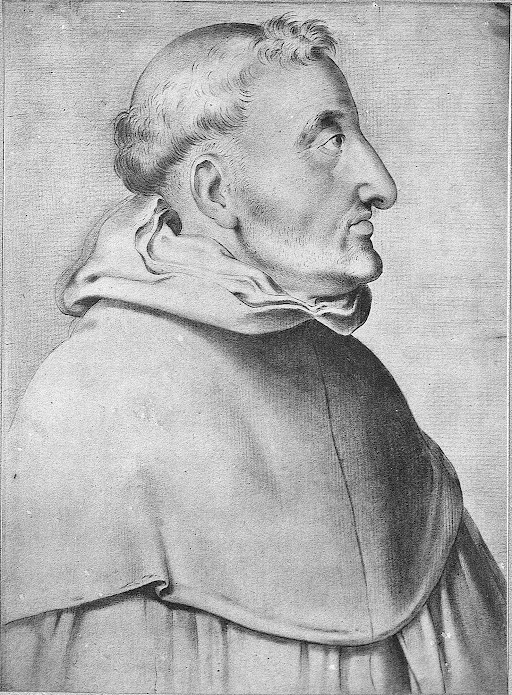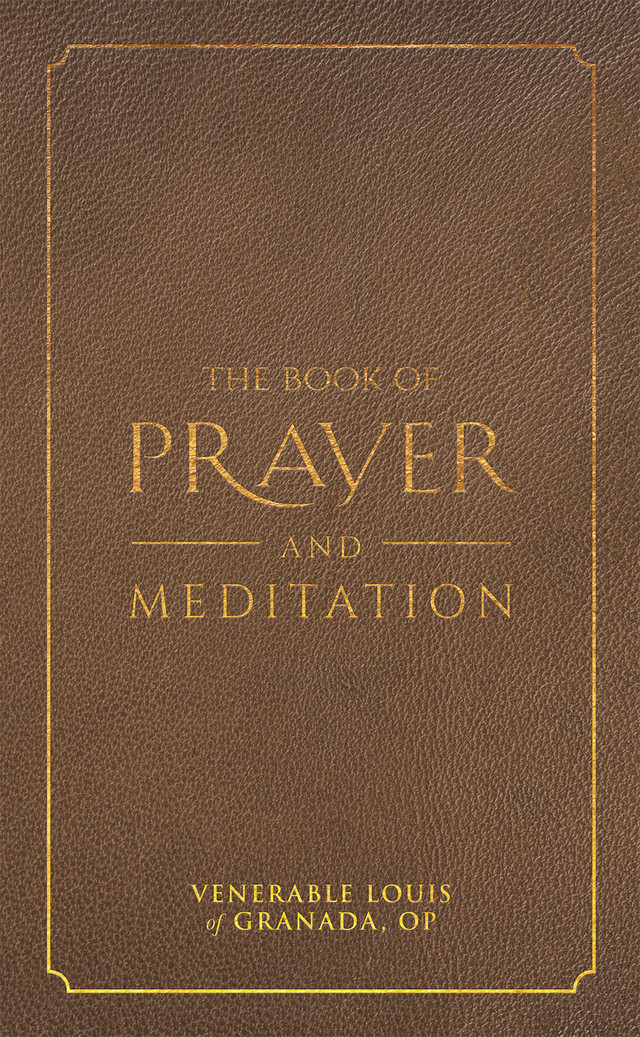The Book of Prayer and Meditation is one of the greatest works of Venerable Louis of Granada–a spiritual master of the 16th century. The following excerpt outlines the five parts of prayer that are to be exercised before and during its practice.
Of Five Parts That May Be Exercised in Prayer
These be the meditations (good Christian reader) wherein thou mayest exercise thyself in the seven days of the week, and in so doing thou shalt not want matter whereupon to meditate. But here it is to be noted, that (as we have already said) there be two things that may go before meditation, and other two that may follow after it. So that in all there be five parts which may concur in this exercise: to wit, preparation: reading: meditation: thanks-giving: and petition.
For before we enter into prayer it is very requisite that we do first prepare our heart unto this holy exercise: following therein the manner and custom of musicians, who use to temper and tune their lute, viall, or other instrument, before they play upon it. And therefore Ecclesiasticus saith: Before prayer prepare thy soul, and be not as a man that tempteth God. To tempt God, is to desire that he should work a miracle in such things, as may be done by other ordinary means. Seeing therefore that the preparation of the heart is such a principal mean to obtain devotion, he that goeth about to obtain it without this mean, sheweth himself to have a desire that almighty God should work a miracle therein: the which (as Ecclesiasticus saith) is as it were a tempting of God.
I. Of Preparation: A Requisite for Prayer, and Meditation
Now it shall be requisite for us to treat particularly of every one of these five parts aforesaid, and first of Preparation, which ought to go before the others.
We said even now that it was necessary to use some preparation of our mind before we enter into prayer. This preparation may be made divers manners of ways. For a man may dispose himself unto prayer by calling to mind his sins, and offences, and namely such sins as he hath committed that present day, and he may accuse himself of them, and desire of our Lord pardon for them, according to the saying of the Wise man. The just man at the beginning is an accuser of himself.
We may also prepare ourselves unto prayer, by considering the majesty and greatness of that Lord unto whom we go to speak in prayer. For this consideration will teach us, with what great reverence, and humility, and with how great attention it behooveth such a miserable creature as man is, to speak unto a lord of so great majesty as almighty God is, concerning a matter of so great importance as is his own salvation. But that thou mayest understand somewhat of the majesty of almighty God, thou must consider, that the heavens, the earth, and all that is created, is no more before the majesty of almighty God, than a little emite, or (as the Wiseman saith) a grain of weight in the balance. Now if all creatures be no more than an emite before him, what shalt thou then seem to be before him, that art so small a part of the whole?
II. Of Reading
After Preparation followeth Reading: the which ought to be done, not lightly, as passed over in haste, but with very great deliberation, and attention: applying thereunto not only thy understanding, to conceive such things as thou readest, but much more thy will, to taste those things that thou understandest. And when thou comest to any devout place, thou shalt do well to stay and pause somewhat longer thereupon, and to make there as it were a station, in thinking upon that matter which thou hast read, and in making some short prayer upon it, according as St. Bernard counseleth us, saying: It is requisite often times to gather and procure a little spirit and devotion out of the matters that we read, and to break of the course of our reading with some kind of prayer, by means whereof we may lift up our heart unto almighty God, and talk with him, according as the sense and matter of such things as we read do require.
III. Of Meditation
After Reading it followeth that we do meditate upon the place that we have read. Concerning which point it is to be known, that this meditation is sometimes upon things that may be figured with the imagination as are all the points of the life and passion of our Savior Christ. And some times again this meditation is upon things that do rather appertain to the understanding, than to the imagination: as when we think upon the benefits of almighty God, or upon his goodness, and mercy, or upon any other of his perfections. This manner of meditation is called INTELLECTUAL: and the other IMAGINARY: and we use both the one manner and the other in these exercises, according as the matter of the things doth require.
IV. Of Thanksgiving
These three parts being ended, there may follow immediately a thanks-giving unto almighty God for the benefits we have received. And that we may not interrupt the course of our devotion with divers affections, and matters, a man may continue this part with the former, taking occasion of such things as he hath meditated upon, to give thanks unto our Lord for the benefit he hath done unto him in that meditation: and with this benefit to join also all other benefits, and to give him most humble and hearty thanks for them all. As for example, when we have ended our meditation upon any point of the passion, we may then forthwith give most humble thanks to our Lord for the benefit of our redemption: and especially for that it pleased him to redeem us with so great pains, and torments. And even then also let us give him most humble thanks for all his other benefits.
V. Of Petition
Now it remaineth that we do treat of the last part of all, which is petition: which containeth in it two parts: in the one part, we make petition unto almighty God for our neighbors: and in the other, for ourselves.
The first part may be continued with thanks giving, desiring that all creatures may serve and praise our Lord, who is so worthy to be praised, and served, for that he is so merciful and bountiful unto all his creatures. And with this affection and desire of the glory of almighty God, let him pray first and principally for all the universal world, that all nations and people may know and serve so mighty a Lord.
After this, he may desire such things for himself, as he perceiveth himself to stand in need of, according to the particular necessities and miseries that he feeleth in his soul, and especially when he desireth help and remedy of almighty God against such vices, and passions, as do most trouble and molest him, and to grant him such virtues as be most needful for him. This kind of petition (among other commodities) hath this withal, that it reneweth daily in the soul good purposes, and desires of virtues, and moveth it to be the more earnest in doing that thing, which he hath so often times and so heartly desired, and it maketh him to be the more ashamed of himself when he doth it not, by calling to mind with how great desire and instancy he hath desired our Lord to grant him grace to do it.
ooo
This article is taken from a chapter in The Book of Prayer and Meditation by Venerable Louis of Granada which is available from TAN Books.









